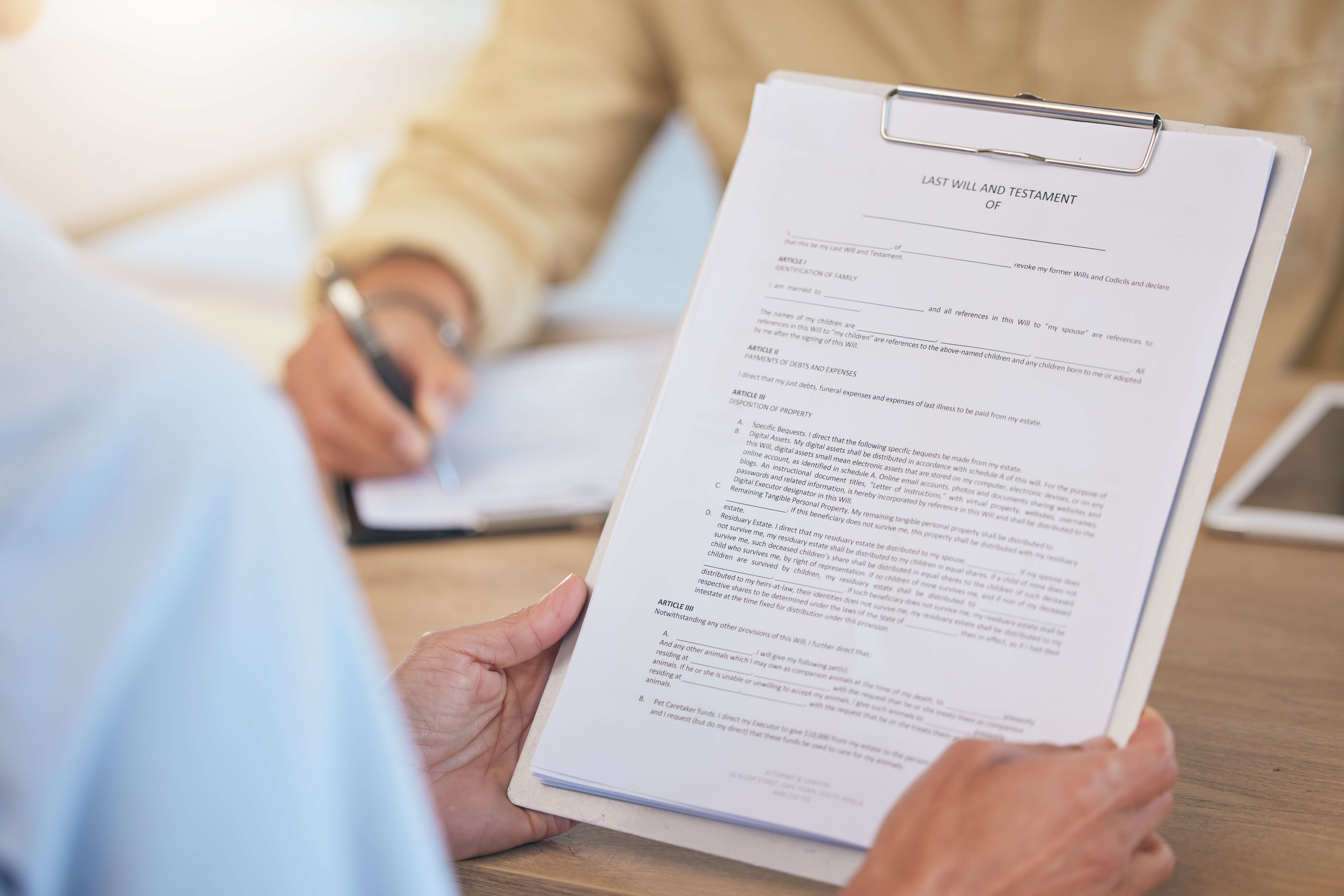Key Takeaways
- Commingling happens when you mix inheritance or gifts with marital property, which makes them subject to division if you divorce later on.
- Massachusetts courts presume commingled assets are marital unless you can prove otherwise, which is not always easy to do.
- Documentation and forensic tracing can help, but it’s expensive and doesn’t always work.
- Strategies like keeping separate accounts and signing postnuptial agreements can prevent commingling issues.
- Tax implications and the need to deal with court-related issues add complexity; professional guidance before the marriage can help.
Massachusetts child relocation hearings hinge on evidence that shows either a “real advantage” to the custodial parent or that the move serves the “best Commingling in Massachusetts divorces refers to the mixing of separate assets, like inheritance or gifts, with marital property. That can mean that those assets lose their protected status and become subject to division.
This typically happens when inherited money is deposited into a joint account or when gifted property is used for shared expenses.
For instance, your aunt passes away and leaves you her house after her death. You bring that home with you into your marriage, and you and your spouse take out a joint second mortgage on it to pay for renovations. You also use it as a vacation home for the family. If you then decide to divorce, the court may decide that the home has been commingled and is no longer 100% yours alone.
Under Massachusetts General Laws Chapter 208 Section 34, courts use what’s called “equitable distribution” to divide assets fairly. However, “fair” doesn’t always mean “equal”.
If you commingle inheritance or gifts during your marriage (even unintentionally), the court may treat those assets as marital property. In fact, 20 to 40% of commingling cases result in partial or total loss of separate status (the asset no longer belongs 100% to the spouse who originally owned it).
That’s why it’s important to track inheritance and gift usage from the moment you receive them.
To learn how to protect your assets, visit our page on separate asset protection in Worcester divorces.

What Risks Does Commingling Pose to Inheritance in Divorces?
Commingling inheritance in a Massachusetts divorce can mean that you lose protection as separate property, making it divisible between spouses.
This is relatively common when you use inheritance funds to make purchases related to the marriage, like home renovations or shared investments. In high-asset divorces, amounts ranging from $50,000 to $500,000 in inheritance can be subject to division. Even passive commingling (like letting inherited money accrue interest in a joint savings account) can trigger classification as marital property.
In 30% to 50% of cases, courts award a share of the commingled inheritance to the non-recipient spouse. This can create serious emotional and financial stress on both spouses. To avoid that, it’s important to keep inherited funds separate and get legal advice before using them jointly.
How Does Active vs. Passive Commingling Differ?
Active commingling happens when you intentionally use inherited or gifted assets for marital purposes, while passive commingling involves natural asset growth within joint accounts.
Massachusetts courts treat both types seriously. If you deposit inherited funds into a joint account and pay for shared expenses, that’s active commingling. If you leave the funds untouched but in a joint account where it earns interest, that’s passive. Courts consider both as evidence that the asset has become marital property.
In 40% to 60% of rulings, judges cited either form as grounds to reclassify inheritance or gifts. Courts also consider your intent, which is why clear documentation is so important.

What Court Cases Illustrate Commingling Risks?
Massachusetts courts have consistently ruled that joint use of inherited funds can convert them into marital property, especially in long-term marriages.
For instance, in cases involving marriages lasting 10 to 20 years, the Probate and Family Court has allocated up to 50% of an inheritance to the non-recipient spouse when those assets were used to buy or renovate a family home. Intent plays a big role. If you can’t prove the funds were meant to remain separate, the court likely won’t assume they were.
To understand how these cases apply to your situation, visit our guide to marital property classification in Massachusetts.
How Can Gifts Be Affected by Commingling in Massachusetts?
Gifts can become marital property if they are given jointly or used for shared purposes, especially without documentation.
If your parents gift you money or valuables during your marriage, and you use them for family expenses or deposit them into a joint account, the court may decide the gift was to both spouses. This happens in 25% to 35% of disputed gift cases.
Donor intent is the key here. What did the giver of the gift intend when they gave it? Verbal assurances usually aren’t enough, either. Courts look for clear, written evidence, like letters or legal documents, to determine if the gift was meant for you alone.
To learn more about how to protect high-value gifts, explore our post on high-value asset handling in Massachusetts divorces.
What Evidence Proves a Gift Was Intended as Separate?
Clear and convincing evidence, like letters, cards, or donor affidavits, can prove a gift was intended as separate property.
Gifts received before marriage are usually retained as separate property in 80 to 90% of cases. However, for gifts during marriage, the court looks for documentation like bank statements, written notes from the donor, or even testimony from the donor or witnesses. Without this, courts often classify the asset as marital.

What Remedies Exist to Trace Commingled Inheritance?
You can use forensic tracing to identify and recover the original source of commingled inheritance, and that could end in partial or full recovery.
Forensic accountants analyze bank records and financial statements to show how the asset was used. With detailed records, tracing succeeds in 50% to 70% of cases. If the inheritance was used for something within the marriage, you may qualify for reimbursement instead of exclusion.
For more on this strategy, learn about forensic accounting for tracing in Massachusetts.
How Does Tracing Work for Appreciated Assets?
Tracing appreciated assets involves separating the original inherited amount from any growth that occurred during the marriage.
For example, if you inherit $100,000 and invest it, resulting in $115,000, you’ll need to prove the $15,000 growth stemmed from market activity, not joint contributions. While that might sound simple enough, professional valuations are often needed. The court puts the burden on the spouse claiming separate status.
What Tools Aid in Effective Tracing?
Transaction logs, financial software, and expert testimony are the main tools for effective tracing.
Forensic accountants usually need between 3 and six months to complete a tracing report. The sooner you begin tracking, the better. Over time, paper trails will fade. Financial institutions purge records. Both make it harder to prove separate ownership.

What Strategies Prevent Commingling of Gifts and Inheritance?
You can prevent commingling by keeping inheritance or gifts in a separate account and using prenuptial or postnuptial agreements to designate them as non-marital.
Agreements and segregation work in 60% to 80% of cases to maintain separate status. Make sure to document every deposit and avoid using inherited funds for joint expenses (remodeling your home, buying vehicles, making investments, etc.). A postnuptial agreement can also reinforce the status of assets received after marriage.
To learn more, explore postnuptial protections for inheritance in Massachusetts.
How Do Tax Implications Influence Prevention?
Commingling can have tax consequences, especially when it comes to capital gains and gift taxes.
Although inheritance is not taxed in Massachusetts, using it for shared investments can create capital gains liabilities of 15% to 20% when you sell. Gifts of more than $18,000 per person per year may mean additional IRS filings, and incorrect documentation could affect your return. Trusts can be useful tools to isolate assets and prevent commingling.
What Challenges Arise in Remedying Commingled Assets?
Remedying commingled assets is both complex and expensive and usually means going through litigation and expert analysis.
You may spend $5,000 to $20,000 on forensic accountants and legal fees. Without strong documentation, the court is still likely to deny your claim. Long marriages especially weaken your chances; 20% to 40% of cases fail because of insufficient evidence.
Early planning and proactive separation reduce the need for court battles.
Learn more about avoiding asset mistakes in Massachusetts divorces.
Frequently Asked Questions
Can commingled inheritance be fully reclaimed in MA divorces?
Yes, but only if you can trace it clearly and prove it wasn’t intended for joint use.
What if a gift was used for marital debt payment?
The court may treat it as a contribution to the marriage, making it marital property.
How long must records be kept for tracing?
If possible, maintain financial records for the duration of your marriage, especially for inherited or gifted assets.
Does commingling affect inheritance taxes?
No, but it may affect capital gains taxes when assets are sold.
Can trusts protect inheritance from commingling?
Yes, properly structured trusts can shield inheritance from marital claims.

Michelle Murray has devoted her practice exclusively to family law matters, focusing her efforts on assisting clients through divorce, custody, property division, child support, spousal support, and visitation issues throughout Worcester County.
